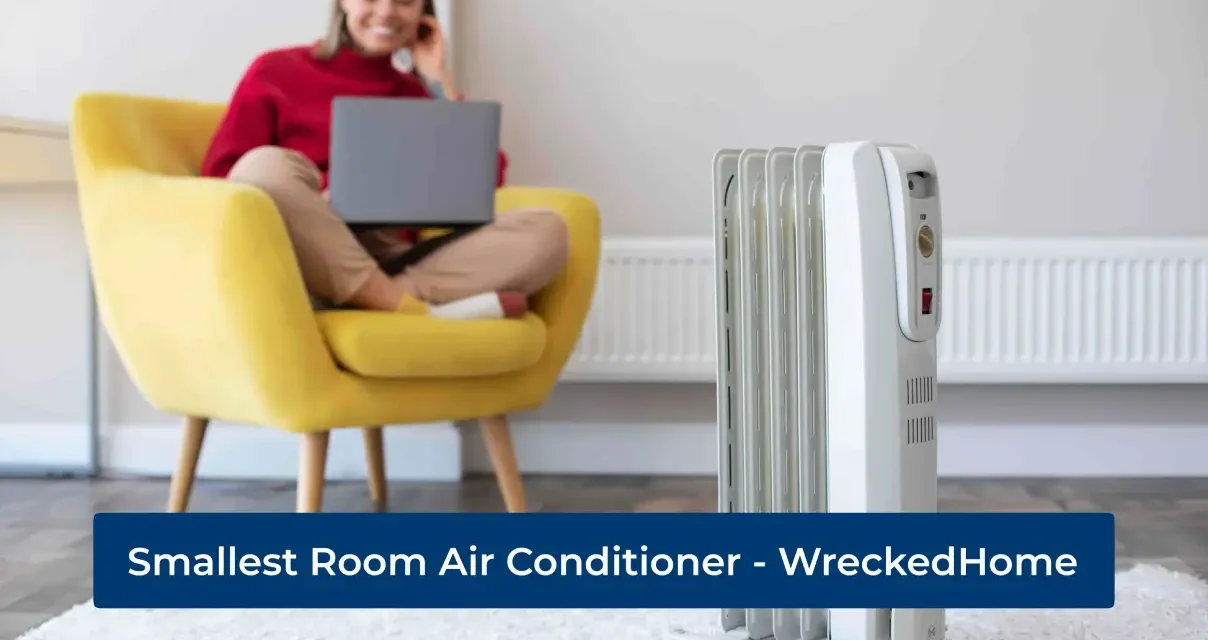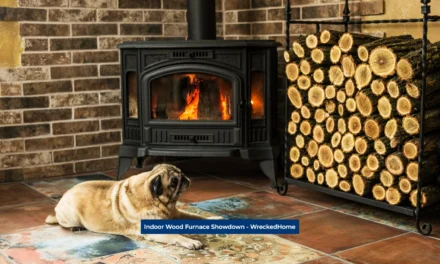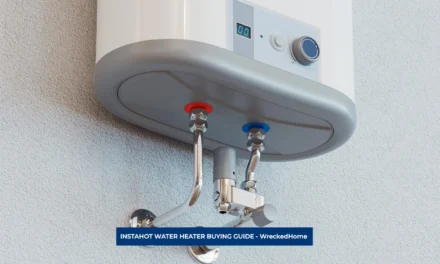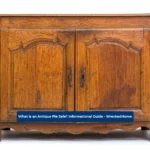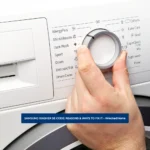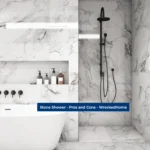Sometimes, you need a smallest room air conditioner to use as a backup for a large AC unit in your home. You may also reside in an area that only receives hot temperatures only a few days throughout the year. In this case, investing in a full size AC will unnecessarily break your bank.
Additionally, the smallest room air conditioner is a good option for people who have tiny houses or a single room to live in. Now that we have established your need, we must answer some questions. What features should you look at when buying such a small room air conditioner? When should you buy and when should you hold off on that purchase? All of this is important to explore before you make a final purchase.
Features like AC capacity, electricity consumption, an inverting feature, decibels, and price help you decide whether it will fulfill your needs or not. A brief understanding of all these features will help you to make an informed decision on such a purchase. This is where we come in. After this detailed buying guide, you should better informed to make such an important purchase. So, let’s dive in to see what to look for when buying the smallest room air conditioner.
What Features to Look for in the Smallest Room Air Conditioner

Small portable air conditioners are great for tiny homes. Their installation is super easy and come with plenty of features. It’s important to look for certain features to ensure that the AC suits your requirements. Here are some of the most essential things to consider when purchasing the smallest room air conditioner;
Air Conditioner Size
The size of the air conditioner is measured in British Thermal Units (BTU) per hour. A higher BTU means higher power and vice versa. It’s important to consider the AC BTU capacity to fulfill your requirements. Here are the estimated requirements for different sized rooms;
| Sr. No | Room Area (Square Feet) | Area (Cubic Feet) | Required BTU |
| 200 | 1,600 | 8,000 | |
| 300 | 2,400 | 10,000 | |
| 400 | 3,200 | 12,000 | |
| 450 | 3,600 | 13,000 | |
| 500 | 4,000 | 14,000 |
But remember, it’s just an estimated measurement not an exact one. Environmental factors largely affect the overall BTU requirements for different areas. Moreover, poor insulation of a room and heat appliances also affect the overall cooling requirements.
So, measure the capacity of an AC and compare it to your home’s surface area. Then make a smart decision according to your cooling requirements.
Placement Options
Mostly, smallest room air conditioners are portable. This means you can place them anywhere according to your preferences and needs. The only thing that needs to be considered is the vent hose that is intended to take the hot air outsider of the room.
However, there are other smaller air conditioners that need to be fixed to a wall. So, finalize which AC type you need for your room.
Drainage System
Air conditioners pull the moisture from the outside environment upon cooling. This results in vapors that need to be drained in a bucket or in an open draining area. Some air conditioners also come with a self evaporation chamber. So, decide whether you can manage regular draining of the condensed water or not then choose the AC model accordingly. Also, consult with a professional if you are unsure. Find A Pro Near You Here!
Electricity Consumption
One of the most important things to consider when purchasing a mini AC for your smaller room is its power consumption. It’s necessary to synchronize the power consumption of your AC and the electricity capacity of your home electrical connection.
Most of the modern houses feature two types of circuits, i.e., 20 ampere or 15 ampere. A 20 amp circuit delivers up to 2,000 watts and exceeding this limit will be nothing less than overloading. A 15 amp circuit delivers a maximum of 1,500 watts.
Most of the AC units draw 1,000 to 1,300 watts. So, choose an AC unit based on your home circuit.
Noisiness
The lack of noisiness of these AC units is the main reason many people invest in them. This is mainly because no one likes noise, and an appliance that is overly noisy will not work for any lifestyle. Additionally, these units run continuously, so excessive noise would definitely be disturbing and uncomfortable.
Most of these AC units produce little or no noise. These units may generate noise up to 50 or 60 decibel, which is audible but doesn’t cause disturbances. So, ensure you purchase such a mini AC unit whose noise level falls between this range. Otherwise, it will disturb your comfort.
Inverter Feature
Another advantage of the latest AC units is that they can perform dual functions. For instance, they have a built in heater that acts as an inverter. So, you don’t need to invest in a separate heating appliance to warm your room in the winter time.
A single inverter will be enough for you that will serve you in summer as well as during the winter season. The only thing is that you may have to increase your budget a little bit higher as such units tend to be pricier than the simple air conditioners. But, this feature pays for itself with time. It is well worth the money.
Filter Quality
Filters are one of the most important parts of an air conditioner, which should be given special attention when making a purchase. An AC unit with a poor filtration system will result in certain health issues, especially respiratory issues.
So, ensure you invest in a unit that has high quality air filters. If you have some serious respiratory issues, you can equip your AC with an air purifier to ensure the quality of the air.
Visit our store for 10% off our Home Maintenance products here.
Maintenance Considerations
Some of the smallest room air conditioner units need frequent maintenance, like filter alterations or drain pipe maintenance. But, there are some units that have a self evaporation system where you don’t have to attach a drainage system. If you can manage the frequent maintenance, go for unit with a drainage system. On the other hand, go for the built in evaporation system unit if you have a busy schedule and can’t manage frequent maintenance.
Cooling Capacity
Cooling capacity is one of the most important things to look at when purchasing an air conditioner for your small room. Ensure the unit you’re going to finalize fulfills your cooling needs. It’s simple to measure the cooling capacity in BTUs, as mentioned in the above table.
Price
The last thing to keep in mind when investing in a smallest room air conditioner is its price. Always look for the features of the air conditioner unit then find one that falls within your budget. Do some research on the different price points and compare the features.
It’s good to decide how much you’re going to invest in such a unit. Then look for different options within that range and make a decision accordingly.
When Should You Purchase a Smallest room Air Conditioner?
A smallest room air conditioner is best for you if;
- You have a small room to cool
- Want to cool a tight office space
- Live in an area that does not get hot very often
- Want a small backup for a large air conditioning system
- Want to purchase a budget friendly air conditioner
- Want to manage electricity consumption
In all of these situations, it’s good to invest in a mini air conditioning system. Purchasing a larger unit will not be a wise decision if you fall under any of these situations.
When Should You Avoid a Smallest Room Air Conditioner?

You should not go for the smallest room air conditioner if;
- You have a big hall or home to cool
- Reside in an area with extremely high temperatures
- Want an instant solution to extreme hot weather
In these situations, a smaller air conditioner unit may not fulfill the cooling needs for an area that features extremely hot temperature. Also, it’s not capable of cooling larger areas instantly. So, it’s good to go for relatively larger air conditioner unit if you have a situation that fits the features above.
Conclusion
In conclusion, we must understand what to consider when purchasing a smallest room air conditioner. When purchasing a smallest room AC, check for its price tag, cooling power, electricity consumption, and noise level. All of these elements are important to look at when making a decision on which air conditioner is best for you.
Moreover, finalize your needs and preferences before you head towards looking for different air conditioner options on the market. It will save your time, as you’ll only look for those units that fulfill all your needs. This way you can make the right choice to cool your mini room!
For any repairs, installations, builds, or questions; We recommend you to hire a professional. Find A Pro Near You Here!
FAQs
Are mini air conditioners worth it?
Yes, mini air conditioners are great options for smaller rooms and will work for such tight spaces. These are effective to cool the smaller spaces. However, these will fail when you want them to function in larger and more spacious hall-type rooms that need special larger units for cooling.
How do I choose the right air conditioner for my room?
Look for the price tag, size of the unit, power consumption, and filter quality when purchasing an air conditioner for your room. Some air conditioners are ideal to cool the larger rooms and tend to be pricey. While others are effective for smaller rooms and will also be budget friendly. But, make a decision based on your needs.
Is a small air conditioner good for me?
A small air conditioner unit is good for you if you want to cool a mini space. Also, these are ideal for people with a tight looking for an air conditioner. They also consume less electricity. However, a small air conditioner may not be good for you if you want it to work in a large space. In such a condition, you’ll have to go for a larger unit which is better capable of cooling the large space.

